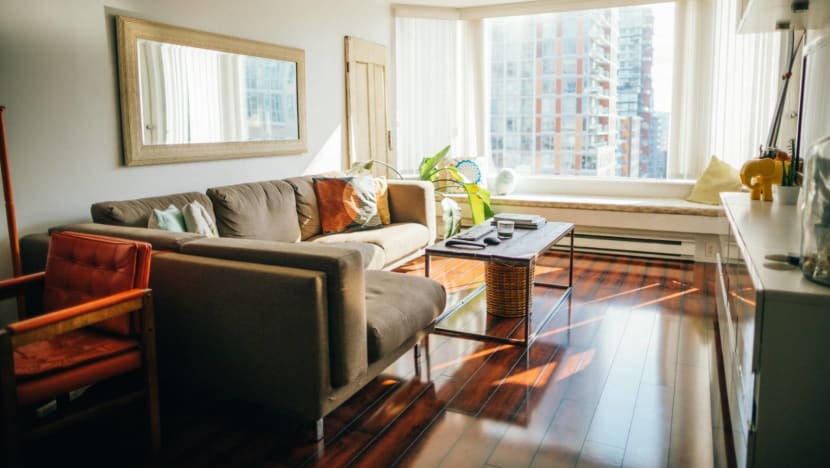Can A Millennial Who Earns $2,500 A Month Afford To Rent A Home? We Got An Expert To Share Tips

More millennials are moving out… and renting their own place.
You’re in your 20s and have a stable job. Now that you’ve had a taste of financial independence, you want more: To move out from your parents’ place and live on your own. Thing is, you’re not married and you’re not 35 yet, so you can’t buy a HDB flat, and you definitely aren’t raking in the big bucks to buy your own private property. So, what do you do?
“The only viable option is to rent,” says Chew Changhui, Head of Consumer Marketing at PropertyGuru. Say what? Don’t Singaporeans typically move out only when they get married? As it turns out, there’s a growing trend of millennials moving out earlier. According to a recent PropertyGuru survey, 80 per cent of millennials aged between 22 and 37 move out of their parents’ homes (compared to 61 per cent in the same period last year), and about 24 per cent of those who moved out are below 27 years old.
But do you have to be a hotshot banker or lawyer to start renting your own place? Is it possible to for someone with a take-home pay of about $2.5k to rent their own place… and not have to survive on instant noodles only? “Although it is possible to rent on a fresh grad pay, you have to be modest and get your finances right,” advises Changhui. Read on for more tips.
Set your budget first, then look at how much savings you have. Changhui’s advice: You should have six to 12 months’ worth of savings before signing any rental agreements. “Millennials should save about 20 to 30 per cent of your take-home pay every month,” he says. So if you’re bringing home $2,500 a month, you should stash away at least $500 a month, and have saved between $3,000 to $6,000 before you even think about moving out.
This, of course, is to act as a buffer should you lose your income for whatever reason. “[When you’re renting a place], you can’t just back out halfway and move back to your parents’ place [whenever you want], because you’re bound by a rental contract. If you break the lease, you need to pay even more money. The exact amount depends on your tenancy agreement. So negotiate properly and read [the terms carefully] before you sign anything,” says Changhui.
Before you even begin to search for your dream rental home on sites like PropertyGuru, there are a few questions to ask yourself first. How much have you saved? How much would you like to spend on rent? Where would you like to stay? All these considerations will factor into your budgeting decision.
If you’re on a shoestring budget, HDB flats, not condos, are your best bet. You can rent a room in a HDB flat from about $600 a month, while you may have to pay upwards of $1,000 per month for a room in a condominium.
Here are some estimated costs if you’re looking to rent as a single tenant (including utility bills):
A room in a HDB flat: $800 - $1,000
An entire four-room HDB flat: $2,500
A small condominium that isn’t in the best location: $2,000 - $2,500
The folks at PropertyGuru have observed that there’s a rising trend of millennials opting for co-living —that is, gathering a few friends to rent an entire place together. For example, if rent for a four-room HDB flat is $2,500 monthly, and you split the bill three ways, it works out to be about slightly over $800 per person per month.
No friends? Renting a room in a HDB as a single tenant usually entails living with the landlord and/or strangers, but this is the cheapest option if you’re on a budget. Also, you usually can only do light cooking, so forget about trying to be the next Masterchef in your rented apartment.
Changhui emphasises on the importance of looking and keeping your options open. Things to pay attention to: the apartment’s proximity to public transportation and hawker centres. One of the most popular areas are the Marine Parade and East Coast neighbourhoods. “There are MRT stations coming up, and there are many direct buses to the CBD and town area. Plus, it’s close to the beach, and people like that. And there’s lots of shopping and food in the area too,” Changhui explains. “But there’s no such thing as a ‘best’ area to move into, because you find your place according to your needs.”
Never take the rent amount that’s first quoted at face value. Like buying a T-shirt from Chatuchak Market, there’s always room to negotiate, even when it comes to rental properties. It’s not uncommon for landlords to intentionally quote a higher price, with the expectation that potential tenants will try to bargain. How do you negotiate rent? For example, if you really like an apartment but it doesn’t have a grocery store within walking distance, use that to your advantage and negotiate for a lower price. You can also sign an extended lease, or prepay your rent in advance for more discount. Changhui suggests that you hire a registered agent from PropertyGuru to do the negotiation for you and suss out the perfect location depending on your needs.
Unless circumstances call for it, moving out to rent a place of your own may not be feasible if you draw in, say, a fresh grad’s salary. After taking into account that besides rent and savings, bear in mind you’ll also need to fork out cash for food, transport, and bills. On top of that, your monthly expenditure will likely increase, no thanks to household necessities (nope, your folks aren’t going to pay for your shampoo and toilet paper any longer, okay?).
Photos: Unsplash










